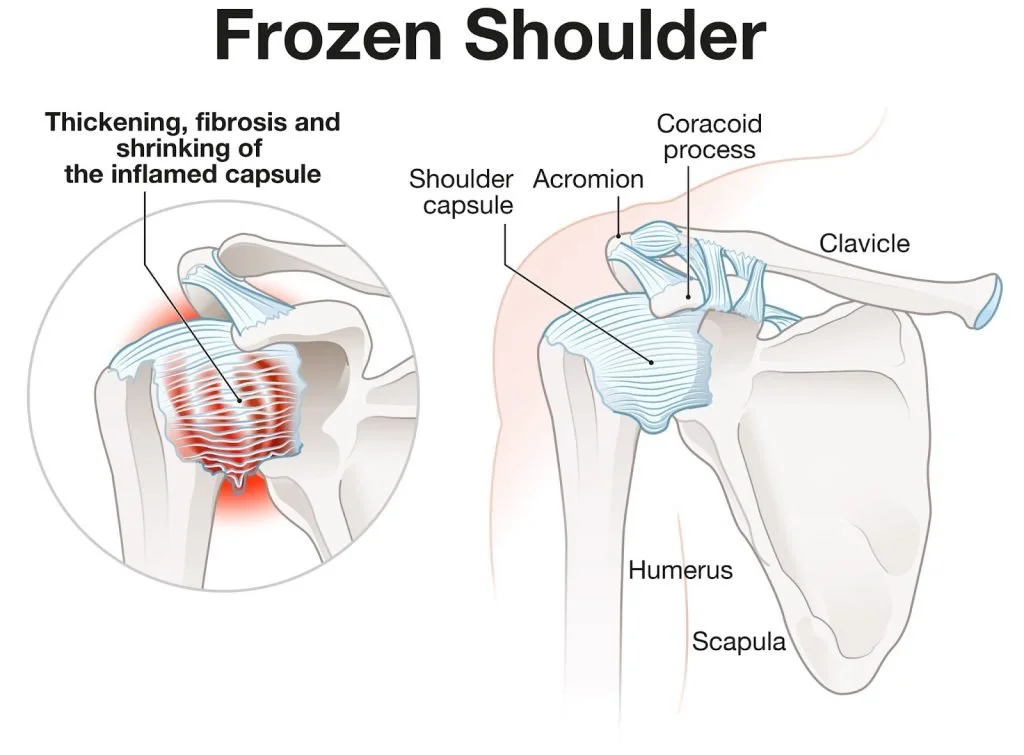
Frozen Shoulder
Think You Might Have Frozen Shoulder? Here's What You Need to Know
Frozen shoulder, also called adhesive capsulitis, can cause tightness and pain in your shoulder joint. It usually starts slowly, gets worse over time, and then gradually improves, often within a few years.
Risk factors to watch out for:
Recovering from a condition or surgery that limits arm movement, like a stroke or mastectomy.
Looking for Relief? Here are the Treatment Options:
Range-of-motion exercises: These help stretch and strengthen your shoulder joint, improving mobility. These gentle exercises are crucial to improve flexibility and regain movement in your shoulder. A physical therapist can design a personalized program specifically for your needs, ensuring you perform the exercises safely and effectively. This is where Outbound Physical Therapy can help! Our experienced therapists will guide you through each step, monitor your progress, and gradually increase the difficulty as your shoulder improves.
Medication: Corticosteroid injections can reduce inflammation and pain, while numbing medication can provide temporary relief.
Surgery (rare cases): In severe situations, arthroscopic surgery might be needed to loosen the joint capsule.
Good News! Frozen shoulder rarely affects the same shoulder twice, although it can develop in the other one.




